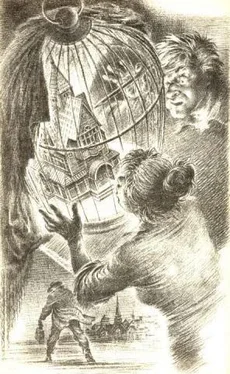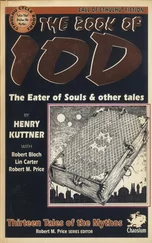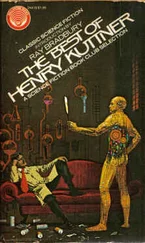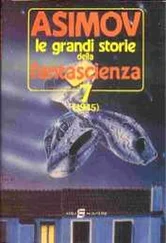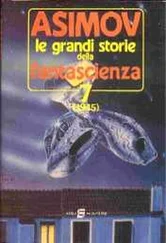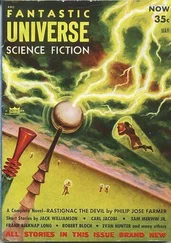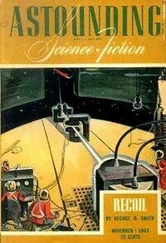Henry Kuttner - Housing Problem
Здесь есть возможность читать онлайн «Henry Kuttner - Housing Problem» весь текст электронной книги совершенно бесплатно (целиком полную версию без сокращений). В некоторых случаях можно слушать аудио, скачать через торрент в формате fb2 и присутствует краткое содержание. Жанр: Юмористическая фантастика, на английском языке. Описание произведения, (предисловие) а так же отзывы посетителей доступны на портале библиотеки ЛибКат.
- Название:Housing Problem
- Автор:
- Жанр:
- Год:неизвестен
- ISBN:нет данных
- Рейтинг книги:5 / 5. Голосов: 1
-
Избранное:Добавить в избранное
- Отзывы:
-
Ваша оценка:
- 100
- 1
- 2
- 3
- 4
- 5
Housing Problem: краткое содержание, описание и аннотация
Предлагаем к чтению аннотацию, описание, краткое содержание или предисловие (зависит от того, что написал сам автор книги «Housing Problem»). Если вы не нашли необходимую информацию о книге — напишите в комментариях, мы постараемся отыскать её.
Housing Problem — читать онлайн бесплатно полную книгу (весь текст) целиком
Ниже представлен текст книги, разбитый по страницам. Система сохранения места последней прочитанной страницы, позволяет с удобством читать онлайн бесплатно книгу «Housing Problem», без необходимости каждый раз заново искать на чём Вы остановились. Поставьте закладку, и сможете в любой момент перейти на страницу, на которой закончили чтение.
Интервал:
Закладка:
Smoke was idling from the chimney. I rang the bell again. No answer. I noticed a domino of a mailbox by the door, chiefly because I could see through the slot that there were letters inside. But the thing was locked.
“If we could see whom they were addressed to—” Jackie suggested.
“Or whom they’re from. That’s what interests me.”
Finally, we went to work. I was preoccupied all day, and nearly welded my thumb onto a boogie-arm. When I met Jackie that night, I could see that she’d been bothered, too.
“Let’s ignore them,” she said as we bounced home on the bus. “We know when we’re not wanted, don’t we?”
“I’m not going to be high-hatted by a—by a critter. Besides, we’ll both go quietly nuts if we don’t find out what’s inside that house. Do you suppose Mr. Herichard’s a wizard?”
“He’s a louse,” Jackie said bitterly. “Going off and leaving ambiguous pixies on our hands!”
When we got home, the little house in the bird cage took alarm, as usual, and by the time we’d yanked off the cover, the distant, soft noises had faded into silence. Lights shone through the drawn blinds. The porch had only the mat on it. In the mailbox we could see the yellow envelope of a telegram.
Jackie turned pale. “It’s the last straw,” she insisted. “A telegram!”
“It may not be.”
“It is, it is, I know it is. Aunt Tinker Bell’s dead. Or Iolanthe’s coming for a visit.”
“The quarantine sign’s off the door,” I said. “There’s a new one. It says ‘wet paint.’”
“Well, you will scribble all over their nice clean door.”
I put the cretonne back, turned off the light switch, and took Jackie’s hand. We stood waiting. After a time something went bump-bump-bump, and then there was a singing, like a tea-kettle. I heard a tiny clatter.
Next morning there were twenty-six bottles of yellow milk—bright yellow—on the tiny porch, and the Lilliputian headline announced:
EXTRA—TUR SLIDES TOWARD FOTZPA!
There was mail in the box, too, but the telegram was gone.
That night things continued much as before. When I pulled the cloth off there was a sudden, furious silence. We felt that we were being watched around the corners of the miniature shades. We finally went to bed, but in the middle of the night I got up and took another look at our mysterious tenants. Not that I saw them, of course. But they must have been throwing a party, for bizarre, small music and wild thumps and pops died into silence as I peeked.
In the morning there was a red bottle and a newspaper on the little porch. The headline said: EXTRA—FOTZPA GOES UP!
“My work’s going to the dogs,” I said. “I can’t concentrate for thinking about this business—and wondering. . .“
“Me, too. We’ve got to find out somehow.”
I peeked. A shade came down so sharply that it almost tore free from its roller.
“Do you think they’re mad?” I asked.
“Yes,” Jackie said, “I do. We must be bothering the very devil out of ‘em. Look—I’ll bet they’re sitting inside by the windows, boiling mad, waiting for us to go away. Maybe we’d better go. It’s time for the bus anyway.”
I looked at the house, and the house, I felt, looked at me with an air of irritated and resentful fury. Oh, well. We went to work.
We were tired and hungry when we got back that night, but even before removing our coats we went into Mr. Henchard’s room. Silence. I switched on the light while Jackie pulled off the cretonne cover from the cage.
I heard her gasp. Instantly I jumped forward, expecting to see a little green guy on that absurd porch—or anything, for that matter. I saw nothing unusual. There was no smoke coming from the chimney.
But Jackie was pointing to the front door. There was a neat, painted sign tacked to the panel. It said, very sedately, simply, and finally: TO LET.
“Oh, oh, oh!” Jackie said.
I gulped. All the shades were up in the tiny windows and the chintz curtains were gone. We could see into the house for the first time. It was completely and awfully empty.
No furniture, anywhere. Nothing at all but a few scrapes and scratches on the polished hardwood floor. The wallpaper was scrupulously clean; the patterns, in the various rooms, were subdued and in good taste. The tenants had left their house in order.
“They moved,” I said.
“Yes,” Jackie murmured. “They moved out.”
All of a sudden I felt lousy. The house—not the tiny one in the cage, but our own—was awfully empty. You know how it is when you’ve been on a visit, and come home into a place that’s full of nothing and nobody?
I grabbed Jackie and held her tight. She felt pretty bad, too. You wouldn’t think that a tiny TO LET sign could make so much difference.
“What’ll Mr. Henchard say’?” Jackie asked, watching me with big eyes.
Mr. Henchard came home two nights later. We were sitting by the fire when he walked in, his Gladstone swinging, the black cigarette holder jutting from below his beak. “Mph,” he greeted us.
“Hello,” I said weakly. “Glad you’re back.”
“Claptrap!” said Mr. Henchard firmly as he headed for his room. Jackie and I looked at one another.
Mr. Henchard squalled in sheer fury. His twisted face appeared around the door.
“Busybodies!” he snarled. “I told you—”
‘Wait a minute,” I said.
“I’m moving Out!” Mr. Henchard barked. “Now!” His head popped
back out of sight; the door slammed and locked. Jackie and I waited, half expecting to be spanked.
Mr. Henchard bounced out of his room, Gladstone suspended from one hand. He whirled past us toward the door.
I tried to stop him. “Mr. Henchard—”
“Claptrap!”
Jackie pulled at one arm, I got a grip on the other. Between us, we managed to bring him to a stop.
“Wait,” I said. “You’ve forgotten your—uh—bird cage.”
“That’s what you think,” he snarled at me. “You can have it. Meddlers! It took me months to build that little house just right, and months more to coax ‘em to live in it. Now you’ve spoiled it. They won’t be back.”
‘Who?” Jackie gulped.
His beady eyes were fixed malignantly on us. “My tenants. I’ll have to build a new house now—ha! But this time I won’t leave it within reach of meddlers.”
‘Wait,” I said. “Are—are you a m-magician?”
Mr. Henchard snorted. “I’m a good craftsman. That’s all it takes. You treat them right, and they’ll treat you right. Still—” And he gleamed a bit with pride. “—it isn’t everybody who knows how to build the right sort of house for them!”
He seemed to be softening, but my next question roused him again.
‘9AThat were they?” he snapped. “The Little Folk, of course. Call ‘em what you like. Nixie, pixie, leprechaun, brownie—they’ve had lots of names. But they want a quiet, respectable neighborhood to live in, not a lot of peeping and prying. Gives the property a bad name. No wonder they moved out! And—mph!—they paid their rent on time, too. Still, the Little Folk always do,” he added.
“Rent?” Jackie said faintly.
“Luck,” Mr. Henchard said. “Good luck. What did you expect they’d pay in—money? Now I’ll have to build another house to get my special luck back.”
He gave us one parting glare, jerked open the door, and stamped out. We stood looking after him. The bus was pulling into the gas station down the slope, and Mr. Henchard broke into a run.
He caught the bus, all right, but only after he’d fallen flat on his face.
I put my arm around Jackie.
“Oh, gosh,” she said. “His bad luck’s working already.”
Читать дальшеИнтервал:
Закладка:
Похожие книги на «Housing Problem»
Представляем Вашему вниманию похожие книги на «Housing Problem» списком для выбора. Мы отобрали схожую по названию и смыслу литературу в надежде предоставить читателям больше вариантов отыскать новые, интересные, ещё непрочитанные произведения.
Обсуждение, отзывы о книге «Housing Problem» и просто собственные мнения читателей. Оставьте ваши комментарии, напишите, что Вы думаете о произведении, его смысле или главных героях. Укажите что конкретно понравилось, а что нет, и почему Вы так считаете.
